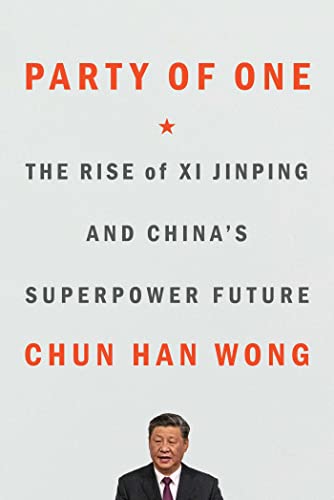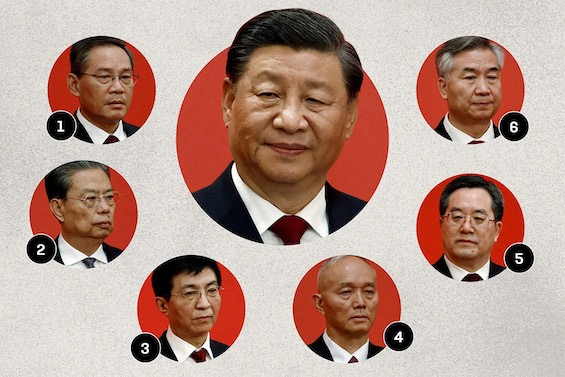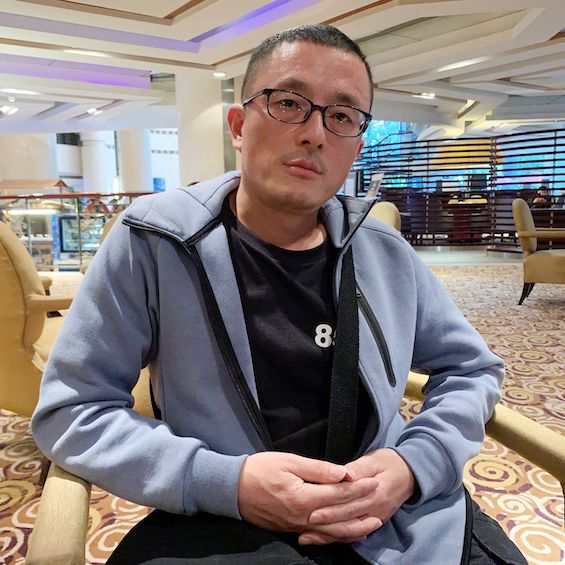
Early in his career as a rising provincial official, people locally viewed him “as a cautious and somewhat nondescript administrator, one who preferred working by the book and avoiding decisions that could backfire later.” But, as Wall Street Journal reporter Chun Han Wong makes clear in his incisive new biography of Xi Jinping, he was simply biding his time. Xi was building a base of friends and supporters who could help him attain the greatest prize of all: paramount leadership in the Communist Party. And today we know that Xi Jinping is anything but cautious or nondescript. He has seized the reins of power like no one else in China since Mao Zedong and worked himself into a position where he may rule the country for life.
Estimated reading time: 9 minutes
He’s not Mao reincarnated
Xi Jinping is unlike Mao in fundamental ways. The founder of the People’s Republic of China was revered by millions of Chinese whose allegiance to him was fanatical, as we learned in the Cultural Revolution. By contrast, Xi’s power rests in the Party. Although he has taken steps to build a “cult of personality,” Xi nonetheless rules through the apparatus. He has been ruthless in weeding out opposition in the upper reaches of the Party and placing his own loyal followers in key positions. But it is only with their continuing support that he holds power. There are no students flocking into the streets waving copies of “The Sayings of Chairman Xi.”
Party of One: The Rise of Xi Jinping and China’s Superpower Future by Chun Han Wong (2023) 416 pages ★★★★★

The consequences of top-down rule
Wong explains that in Communist systems historically “officials perform political rituals that prioritize form over substance. For instance, by inflating numbers to match quotas or blindly following policies imposed from above that have no local relevance. Understanding this full well, Deng Xiaoping eased the Party’s control over lower-level officials, allowing them to take the initiative and solve local problems in their own way. But Xi Jinping has reversed course. “The phenomenon has grown even more pervasive under Xi, whose top-down governance has driven officials toward foot-dragging, fraud, and other unproductive practices—so as to satisfy their leader’s demands and avoid his wrath.”
Corruption in China
When Xi Jinping first gained election as General Secretary of the Communist Party in 2012, he confronted a nation in crisis. (He holds all three top jobs, which also include the chairmanship of the Central Military Commission and President.) Corruption was endemic, hobbling every level of the Party and the government and causing disaffection—and, increasingly, protest—everywhere in the country. According to the Chinese Academy of Social Sciences, there were nearly 200,000 “”mass group incidents” that year. Xi’s response, like other leaders before him, was to launch an “anticorruption campaign.” But “anticorruption crackdowns pursued by Deng’s successors, Jiang Deming and Hu Jintao, often fizzled after initial fervor.” Xi’s was serious.
Ultimately, more than a million Party and government officials lost their jobs, senior Party officials among them. Many were imprisoned. And it worked. The level of corruption sharply declined. But so did the cadres’ morale, as officials everywhere hid behind mountains of red tape and refused to take any action not precisely required by their superiors.
Widespread human rights violations
Under “China’s shift toward harsher, technology-driven authoritarianism,” the twelve million predominantly Muslim Uyghur people of Xinjiang and the seven million people of formerly democratic Hong Kong have suffered visibly. But they are merely the most visible victims of Xi’s autocratic rule. Wong describes in detail the harsh measures the Party has put in place in leading cities—but near-universal surveillance, the “social credit” system, and pre-trial detention are rapidly spreading throughout the country.
This is not totalitarianism, at least not yet. But it holds the potential to flower into total cradle-to-grave control of China’s 1.4 billion people. Xi interprets Chinese values through the lens of Legalism that emerged in the third century BCE in opposition to Confucianism. Legalist scholars, and now the leadership of the Chinese Communist Party, do not recognize human rights. The collective trumps the individual. So, it’s not just defensiveness that causes Chinese officials to reject Western howls about human rights violations in their country. The concept makes no sense to them.
The constraints on Xi’s power
President Joe Biden recently referred to Xi Jinping in public as a “dictator,” not once but twice. But is he really? In theory at least, a dictator can act unrestrained by limits on his power. But what does it really mean to be the “paramount leader,” the “core of the Party,” in the world’s second richest country? To command resources far beyond the wildest dreams of the petty tyrants who hold sway in so many countries of Asia, Africa, Latin America, and Eastern Europe? It means a great deal, obviously. The power of life and death over 1.4 billion people. The power to launch a war against the world’s most feared military.
But, even so, Xi Jinping is not all-powerful, as I learned with a careful reading of Chun Han Wong’s biography of Xi. There are considerable constraints on the leader’s power, even though he has sidestepped most of the safeguards Deng Xiaoping built into the system decades ago.
“More equal than others”
Like Napoleon the pig in George Orwell’s Animal Farm, Xi is “more equal than others” in the seven-member Standing Committee of the Chinese Communist Party’s Politburo. And he has hand-picked every one of them. Still, he could never take them on all at once. Nor could he move with impunity on more than a handful of other powerful people at any given time. In the final analysis, he must rule by consensus.
An inflexible bureaucracy
China’s government bureaucracy is inflexible and indecisive. “Overzealous officials take Xi’s edicts too far, while others in fear of punishment for acting without approval” fail to act at all. This is the true legacy of Xi’s anticorruption campaign. And he pays the price in finding it difficult to move bureaucrats who demand detailed guidance from above.
Legalistic limitations
To work his will in China’s nominally law-based society, Xi must lay the groundwork with new laws and regulations if he wishes to take action that clashes with established practice. He has been forced to order changes in thousands of procedures and conventions to get his way.
The potential for massive domestic protest
Xi faces fallout from bad decisions, as we saw when millions rose up in fury over his “zero Covid” policy—and ending it abruptly, leaving the Chinese healthcare system in chaos. He is vulnerable to massive domestic protest. And when he ignites strong emotions among the people, as he has done with torrents of nationalistic and anti-Western propaganda, he faces a backlash whenever he steps back from the brink of conflict. The tiger he holds by the tail has a mind of its own.
Micromanagement has its price
As I’ve noted above, Xi strikes fear in officials throughout the land with his top-down, micromanagement of policy. And those at lower levels—and they’re all at lower levels—tend to shy away from taking action unless he specifically orders it. Few have the courage to take the initiative, having seen how some who did have lost their jobs or been sent to prison.
Pushback from other countries
External pressure from the West and from his Asian neighbors greatly limits his freedom of action. Thus, Xi faces the same limitations confronting any world leader, no matter how powerful: pushback from other countries and the pervasive impact of global economic trends.
The legacy of Maoism
Xi is hampered by the legacy of Maoism—the many unprofitable and debt-ridden state-owned enterprises at the “commanding heights” of the Chinese economy. Xi can’t shut them down without laying off people in droves. Instead, he has poured billions into them while placing limits on the power of their competitors in private enterprise.
Unpredictable family members
American Presidents have faced embarrassment and worse at the hands of problematic family members. Think Mary Lincoln, Alice Roosevelt, Donald Nixon, Billy Carter, Neil Bush, Hunter Biden. Little is known about Xi’s only child, a daughter named Xi Mingze. But an older sister, Qi Qiaoqiao, and her husband, Deng Jiagui, have amassed a fortune in real estate and other businesses. Deng has set up offshore companies to hide much of the money. Bloomberg reported more than a decade ago that the family’s wealth totaled $300 million. There’s plenty of room here for scandal to emerge.
About the author

The author’s bio on the Wall Street Journal website reads in part: “Chun Han Wong covers Chinese politics and foreign policy for The Wall Street Journal. As a China-focused reporter for the Journal since 2014, he has written widely on subjects spanning elite politics, Communist Party doctrine, human and labor rights, as well as defense and diplomatic affairs. Chun Han was part of a team of Journal reporters named as Pulitzer Prize finalists in 2021 for their coverage of China’s autocratic turn under Xi Jinping.
“A graduate of the London School of Economics, Chun Han started reporting for the Journal and Dow Jones Newswires in 2010, first covering politics and business in Singapore, Cambodia and the broader Southeast Asian region.”
For related reading
This is one of 30 insightful books about China. In particular, see The Dean of Shandong: Confessions of a Minor Bureaucrat at a Chinese University by Daniel A. Bell (An insider’s view of the Chinese political system) and Sparks: China’s Underground Historians and their Battle for the Future by Ian Johnson (Digging out the truth about Mao Zedong). It’s also one of The best books of 2023 so far.
You might also care to check out:
- 10 great biographies
- Top 10 nonfiction books about politics
- 20 top nonfiction books about history
- Gaining a global perspective on the world around us
And you can always find my most popular reviews, and the most recent ones, on the Home Page.

























